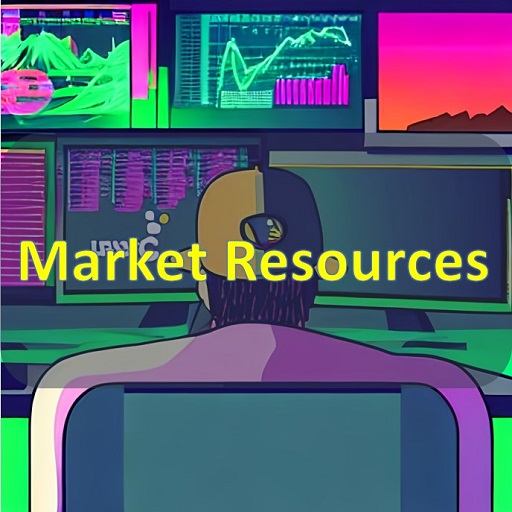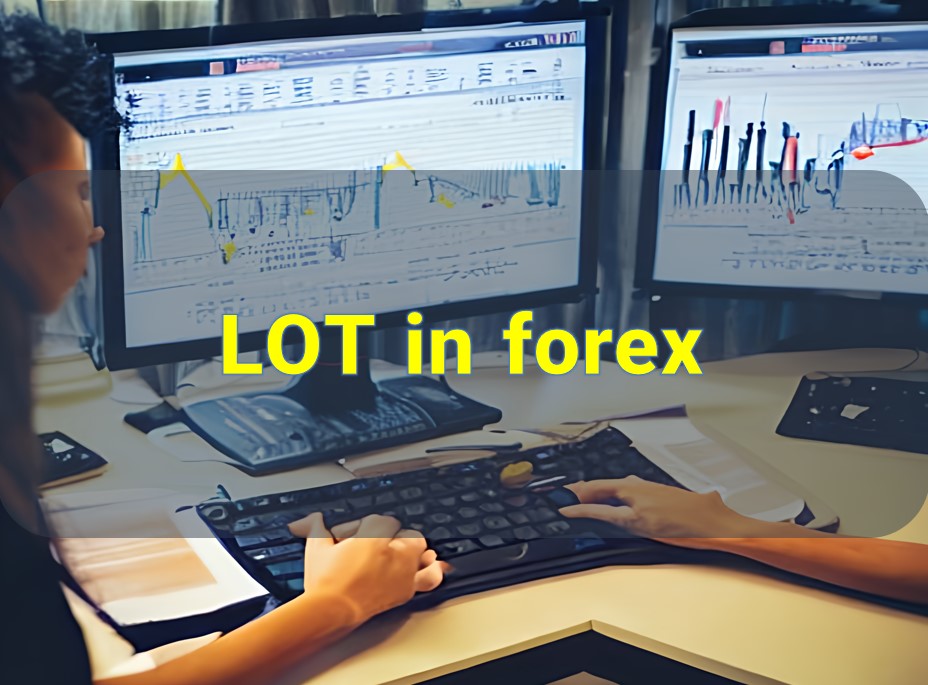When it comes to navigating the forex market, having access to reliable resources is essential. Here are some forex market resources that you’ll find useful:
Economic Calendars
Economic calendars provide a schedule of upcoming economic events, such as central bank announcements, economic indicators, and other key market-moving events. They help you stay updated on important events that can impact currency prices.
Financial News Sources (Market Resources)
Stay informed about global financial news and developments by following reputable financial news sources. Some popular options include Bloomberg, Reuters, Financial Times, and CNBC. These sources provide real-time news updates, analysis, and insights into the forex market.
Forex Broker Platforms
Choose a reputable forex broker that offers a user-friendly trading platform with advanced charting tools, real-time quotes, and execution capabilities. Examples of popular forex broker platforms include MetaTrader 4 (MT4) and MetaTrader 5 (MT5).
Technical Analysis Tools
Technical analysis is crucial for forex trading. Access to charting tools and indicators can help you analyze historical price data, identify patterns, and make informed trading decisions. Platforms like TradingView and MetaTrader offer a wide range of technical analysis tools.
Online Forums and Communities
Engage with other forex traders on online forums and communities to share knowledge, insights, and experiences. Websites like Forex Factory, BabyPips, and Reddit’s r/Forex are popular platforms for discussing forex-related topics and learning from other traders.
Educational Resources
Continuous learning is vital in the forex market. Explore educational resources such as online courses, webinars, tutorials, and ebooks. Babypips.com offers a comprehensive beginner’s guide to forex trading, while Investopedia provides a wealth of articles on various forex topics.
Central Bank Websites
Stay updated on monetary policy decisions, interest rate changes, and official statements by visiting the websites of major central banks. Examples include the Federal Reserve (U.S.), European Central Bank (EU), Bank of England (UK), Bank of Japan (Japan), and Reserve Bank of Australia (Australia).
Economic Data Providers
Access to accurate and timely economic data is crucial for fundamental analysis. Providers like Trading Economics, Forexlive, and Investing.com offer a wide range of economic indicators, calendars, and data releases.
Social Media
Follow influential forex traders, analysts, and market commentators on social media platforms like Twitter and LinkedIn. They often share market insights, analysis, and trade ideas that can be valuable for your own trading decisions.
Risk Management Tools
Utilize risk management tools, such as position sizing calculators and risk/reward calculators, to manage your trades effectively. These tools help you determine appropriate trade sizes and assess potential profit and loss scenarios.
Historical Data Providers
Access to historical price data is essential for backtesting trading strategies and conducting thorough analysis. Data providers like Dukascopy and TrueFX offer free and paid historical forex data that you can use for research and strategy development.
Trading Journals
Maintaining a trading journal is an invaluable resource for tracking your trades, analyzing performance, and identifying areas for improvement. You can use digital tools like Evernote or dedicated trading journal platforms like Edgewonk or Tradervue to record your trades, emotions, and observations.
Economic Analysis Reports
Many financial institutions, research firms, and forex brokers release regular economic analysis reports. These reports provide insights into market trends, macroeconomic factors, and potential trading opportunities. Examples include DailyFX’s research reports and reports from major banks like Barclays, JP Morgan, and Goldman Sachs.
Forex Podcasts and Webinars
Stay connected to the forex market while on the go by listening to forex podcasts or attending webinars. Podcasts like “Chat With Traders” and “Desire To Trade” feature interviews with successful traders and provide valuable insights. Forex brokers and educational platforms often host webinars covering various topics, including trading strategies and market analysis.
Regulatory Authorities
Familiarize yourself with the regulatory bodies overseeing forex trading in your region. These authorities provide guidelines, regulatory updates, and investor protection measures. Examples include the U.S. Commodity Futures Trading Commission (CFTC), the Financial Conduct Authority (FCA) in the UK, and the Australian Securities and Investments Commission (ASIC).
Trading Simulators
Practice trading strategies and test your skills without risking real money using trading simulators or demo accounts. Most forex brokers offer demo accounts that allow you to trade with virtual funds and experience real-time market conditions.
Forex Trading Blogs
Explore reputable forex trading blogs for educational content, trading tips, and market analysis. Blogs such as Forex Crunch, DailyFX, and FXStreet offer a wealth of information from industry experts and experienced traders.
Trading Psychology Resources
Emotions play a significant role in trading, and managing them is crucial for success. Books like “Trading in the Zone” by Mark Douglas and “The Psychology of Trading” by Brett N. Steenbarger provide insights into trading psychology and offer strategies to develop a disciplined and focused mindset.
Trading Signals
Trading signals can provide you with trade ideas and recommendations based on the analysis of experienced traders or automated systems. You can find signal providers online, and some forex brokers also offer their own signal services. However, exercise caution and perform your own analysis before acting on any signals.
Trading Courses and Mentorship
Enrolling in structured trading courses or seeking mentorship from experienced traders can accelerate your learning curve. Look for reputable forex trading courses offered by established educators or consider finding a mentor who can guide you through the intricacies of the market.
Forex Calculators
Utilize online forex calculators to perform various calculations related to position sizing, pip value, margin requirements, and risk management. These calculators simplify complex calculations and help you make informed decisions about trade parameters.
Trading Software and Tools
Explore trading software and tools that can assist you in your analysis and trading processes. For example, there are tools that help you automate your trading strategies (e.g., Expert Advisors in MetaTrader), perform advanced statistical analysis, or enhance your risk management techniques.
Trading Communities and Social Trading Platforms
Joining trading communities and social trading platforms can provide you with opportunities to connect with fellow traders, share insights, and even replicate the trades of successful traders. Platforms like eToro, ZuluTrade, and Myfxbook offer social trading features.
Forex Market Research Reports
Research reports prepared by reputable financial institutions, market research firms, or forex brokers can offer valuable insights into market trends, economic analysis, and forecasts. These reports can help you stay updated on market conditions and assist in forming your trading strategies.
Regulatory Filings and Disclosures
Publicly traded companies, especially those in the forex and financial sector, are required to file reports and disclosures. These filings, such as quarterly reports and annual statements, can provide you with information about the financial health and performance of the companies involved in the forex market.
Trading Events and Conferences
Attend trading events, conferences, and seminars to gain knowledge, network with industry professionals, and stay up-to-date with the latest trends and innovations in forex trading. These events often feature expert speakers, panel discussions, and workshops.
Trading Journal Apps
Use mobile apps specifically designed for trading journals. These apps allow you to easily record and track your trades, monitor performance metrics, and review your trading history on the go. Examples include Trademetria, TradeBench, and TradingDiary Pro.
Trading Podcasts
Expand your knowledge and gain insights from experienced traders by listening to forex trading podcasts. Podcasts like “The Trading Coach Podcast” and “The Trading Lifestyle Podcast” feature interviews, discussions, and trading strategies shared by successful traders.
Online Trading Communities
Join online forums, social media groups, and chat rooms focused on forex trading. Engaging with a community of like-minded traders can provide support, share ideas, and offer valuable perspectives. Websites like Forex Factory and Myfxbook have active trading communities.
Trading Simulations and Challenges
Participate in trading simulations and challenges that replicate real market conditions. These platforms often offer virtual trading accounts, competitions, and educational resources to help you practice and improve your trading skills. Examples include Forex.com’s TradingView Trading Challenge and Investopedia’s Forex Simulator.
Forex Market Analysis Websites
Explore websites that specialize in forex market analysis and provide daily or weekly insights, technical analysis, and trade setups. Websites like ForexLive, DailyFX, and FX Empire offer comprehensive market analysis and commentary.
Trade Ideas and Scanner Tools
Utilize trade ideas and scanner tools to identify potential trading opportunities based on specific criteria and filters. These tools scan the market for specific patterns, indicators, or price movements that match your trading strategies. Trade Ideas, Finviz, and TrendSpider are popular tools in this category.
Forex Trading Books
Expand your forex trading knowledge by reading books written by experienced traders and market experts. Some highly recommended books include “Reminiscences of a Stock Operator” by Edwin Lefèvre, “Market Wizards” by Jack D. Schwager, and “Japanese Candlestick Charting Techniques” by Steve Nison.
Currency Correlation Tools
Use currency correlation tools to analyze the relationship between different currency pairs. Understanding currency correlations can help you identify potential trading opportunities, diversify your portfolio, and manage risk effectively. Websites like Mataf.net and Oanda offer currency correlation matrices and calculators.
Financial Data APIs
Access financial data through application programming interfaces (APIs) to integrate real-time market data, economic indicators, and other financial information into your trading systems or applications. Providers like Alpha Vantage and Xignite offer comprehensive financial data APIs.
Remember, while these resources can be valuable, always validate the information and consider multiple sources before making trading decisions. Continuously educate yourself, adapt to market conditions, and develop your trading skills to enhance your chances of success in the forex market.







